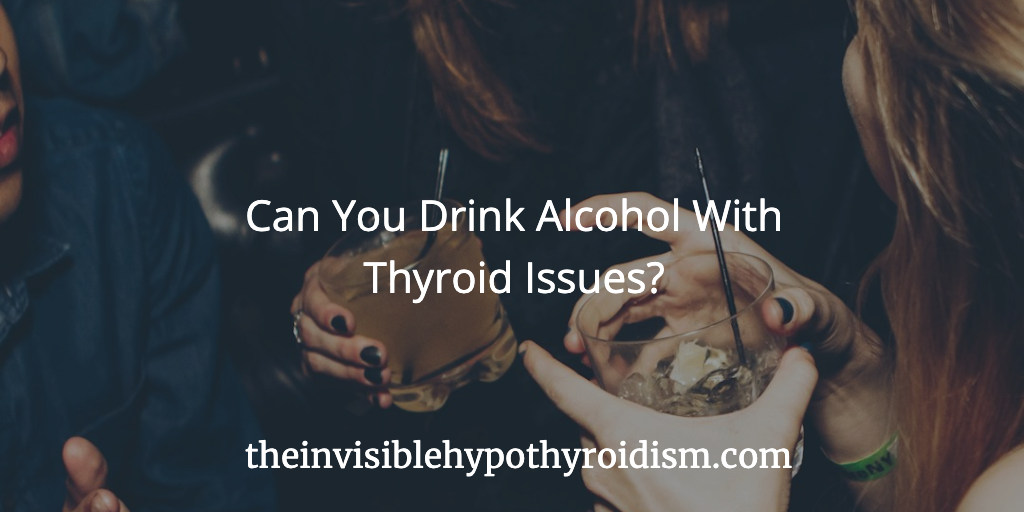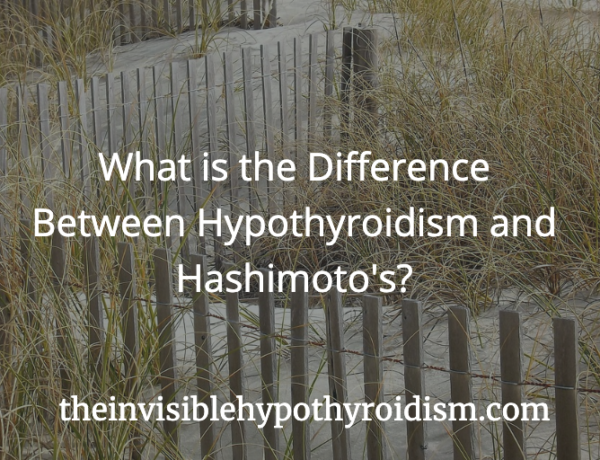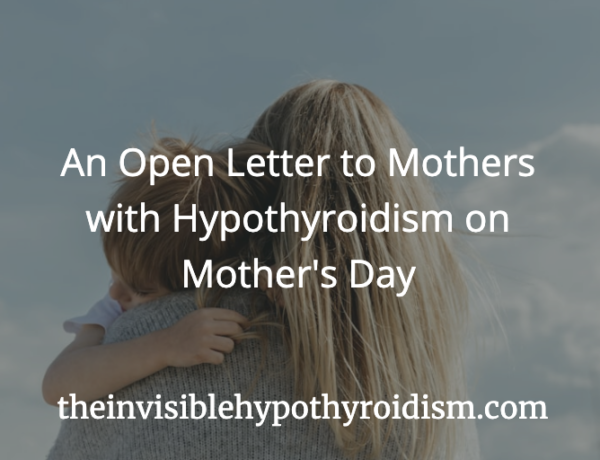Originally published on 17th March 2017
Last updated on 12th April 2024
Those with thyroid conditions such as hypothyroidism and Hashimoto’s, and on thyroid medication such as Levothyroxine, Synthroid, Armour, Liothyronine etc. may find themselves asking:
- Why don’t I tolerate alcohol as well as I did pre-diagnosis?
- Can I drink alcohol while on thyroid medication?
- Why do my hangovers or flares last so much longer?
Let’s look at the connection between alcohol and thyroid function.
Does alcohol affect your thyroid health?
Alcohol Sensitivity or Intolerance
Many people with hypothyroidism and Hashimoto’s report developing an intolerance or increased sensitivity to alcohol. This may look like hangovers or thyroid flares after just one drink, heart palpitations, headaches from alcoholic drinks that never used to cause headaches, or itching and rashes.
Impacts To Thyroid Hormone Conversion
One possibility may be that it is linked with how your thyroid and liver work together, as we know that alcohol can be a stress on the liver, yet good liver health is required for good thyroid hormone conversion, as a lot of thyroid hormone conversion takes place here. If your liver is very busy processing and metabolising the alcohol you consume, it may not convert thyroid hormone as effectively.
Also, regularly drinking a lot of alcohol can inhibit thyroid hormones T3 and T4 and may reduce the activity of type II 5’-deiodinase. This enzyme is used to convert storage hormone T4 into the active hormone T3, and if this is impacted, you may experience reduced levels of Free T3 with ongoing symptoms. Read more about thyroid hormone conversion issues here.
Reduced Thyroid Hormone Levels
The fact that alcohol also causes direct cellular toxicity on thyroid cells, thereby causing thyroid suppression and reducing thyroid volume, is well established. [1]
Alcohol is known to have a direct toxic effect on thyroid cells, which is used therapeutically in ethanol ablation therapy of thyroid nodules. [2], [3]
It has also been found that excess alcohol intake blocks the release of TSH (Thyroid Stimulating Hormone). Overconsumption of alcohol reduces the responsiveness of thyrotropin-releasing hormone (TRH), which communicates the need for TSH.
It is believed that alcohol can even shrink the thyroid in cases of alcoholism. [4]

I used to drink alcohol occasionally, up until 2019, when I realised it was contributing to a lot of thyroid flares and making it hard to get my thyroid symptoms under control.
Oestrogen and Thyroid Function
Drinking a lot of alcohol can also cause the level of oestrogen in your body to rise, and too much oestrogen can suppress or block thyroid function and hormones from working as efficiently as they should be.
This can make you feel extra hypothyroid or intolerant of alcohol. It can even encourage acne break-outs in some women, along with PMS and delayed periods.
In men, as little as five alcoholic drinks a week can cause testosterone levels to fall and oestrogen levels to rise, which can contribute to gynaecomastia (sometimes referred to as ‘man boobs’ – a condition that causes men’s breasts to swell and become larger than normal).[5]
Consuming alcohol further continues to put strain on the liver and may prevent it from detoxifying the excess oestrogen as effectively, leading it to build up in tissues and cause oestrogen levels to rise even further. This may lead to something called ‘oestrogen dominance‘.
Adrenal Glands
In response to rising sex hormones, the body can become stressed and on high alert, releasing stress hormones such as cortisol in excess. This can further inhibit the liver from converting T4 (the storage hormones) to T3 (the active hormone), which again, contributes to us feeling unwell and increased likeliness of adrenal dysfunction, which many hypothyroid patients also have, often without knowing.
Increased cortisol can deplete progesterone levels further, resulting in even higher oestrogen levels, feeding back in to an unhelpful cycle.
Alcohol may contribute to high cortisol levels.
Alcohol and Vitamins and Minerals
Alcohol can also deplete minerals and vitamins such as magnesium, zinc, folic acid, B Vitamins and Selenium. All of which are very important for thyroid health and overall health and wellbeing.
We should definitely avoid taking any supplements or medications with or close to alcohol. Vitamin C is actually destroyed through alcohol consumption.
Gut Health
Alcohol may also increase intestinal permeability in some people. Those with autoimmune hypothyroidism, that is, Hashimoto’s as the cause for their hypothyroidism, may be particularly prone to gut complaints and find that alcohol increases their occurrence of bloating, acid reflux, indigestion etc.
When thyroid patients undertake gut health improvement protocols, abstaining from alcohol is often recommended.
My Experience With Alcohol and Thyroid Disease
As a thyroid patient advocate, I am often asked if I avoid alcohol.

Being a gluten-free thyroid patient, I was only posing for a photo here in Dublin’s Guinness Storehouse!
Since early 2019, I have not consumed alcohol. I realised that it was causing flares every time I consumed alcohol, even just one drink, which was really impacting my overall health, and I could not be unwell that often with work and other responsibilities to fulfil!
It was also contributing to my poor gut health and acne, hives, as well as acid reflux and migraines.
I also knew that I wanted to give it up in preparation for starting a family, as part of my pre-conception plan.
My reaction? I feel much, much better off alcohol and adjusting to ordering soft drinks, water, mocktails etc. when I go out has been fine. I very rarely have flares or hard thyroid days anymore, my skin is great and I definitely feel the benefits. My Hashimoto’s has also come in to remission since.
Conclusion
As with everything, some thyroid patients will feel fine when consuming alcohol, whereas others will feel rather unwell.
As a result of everything contained in this article, it is possible that when you consume alcohol and also have a thyroid condition, you may feel an increase in thyroid symptoms the next day or possibly even take several days to recover from it, feeling extra tired and achy. Thyroid flares can result from drinking alcohol.
It is recommended that everyone should drink alcohol in moderation, but in the case of thyroid patients, this may be even more important as heavy or regular drinking may worsen thyroid symptoms, increase thyroid antibodies (or make it hard to reduce them), cause more flares, worsen gut health and more.
If you wish to consume alcohol then consider the overall effects on your health specifically. If alcohol contributes to you feeling worse, particularly in the form of flares or more hypothyroidism or Hashimoto’s symptoms, consider whether it is best to avoid it to better manage your health.
Alcohol is not known to affect the way in which thyroid medication works, but do make sure there is at least an hour between taking thyroid medication and consuming anything other than water.
It is also interesting to know that several studies have reported a decrease in thyroid cancer risk with alcohol use. [6], [7], [8], [9], [10]
Have you noticed a difference when drinking alcohol?

You can click on the hyperlinks in the above post to learn more and see references to information give, but further information can also be found at:
Wine, spirits, beer and thyroid function
References:
[1] https://www.ncbi.nlm.nih.gov/pmc/articles/PMC3743356/
[2] https://www.ncbi.nlm.nih.gov/pubmed/16855000
[3] https://www.ncbi.nlm.nih.gov/pubmed/2188302
[4] https://www.forefronthealth.com/thyroid-after-drinking-alcohol/
[5] https://www.forefronthealth.com/thyroid-after-drinking-alcohol/
[6] https://www.ncbi.nlm.nih.gov/pubmed/17545694
[7] https://www.ncbi.nlm.nih.gov/pubmed/17855390
[8] https://www.ncbi.nlm.nih.gov/pmc/articles/PMC2220030/
[9] https://www.ncbi.nlm.nih.gov/pubmed/15141135
[10] https://www.ncbi.nlm.nih.gov/pubmed/14674742





